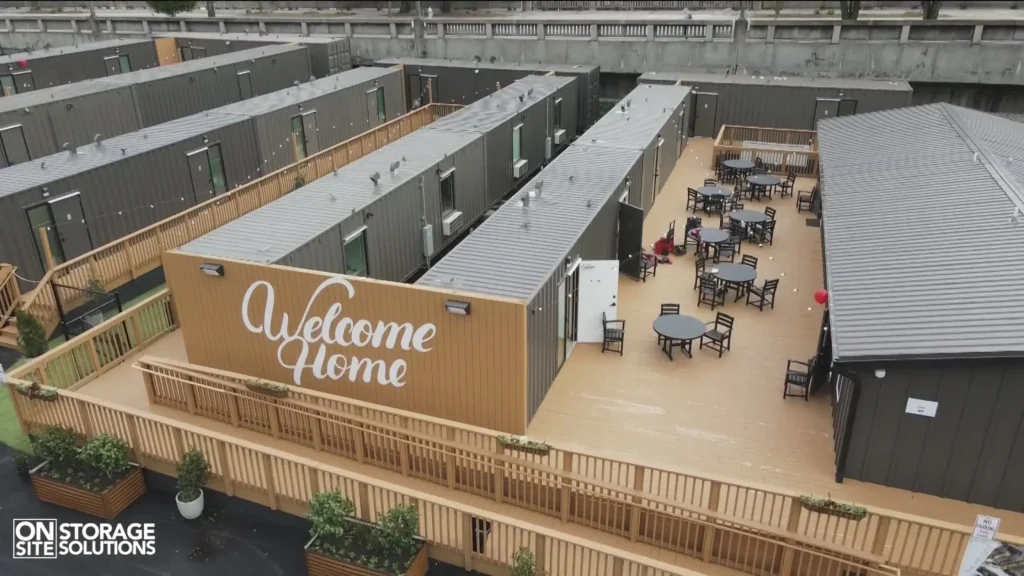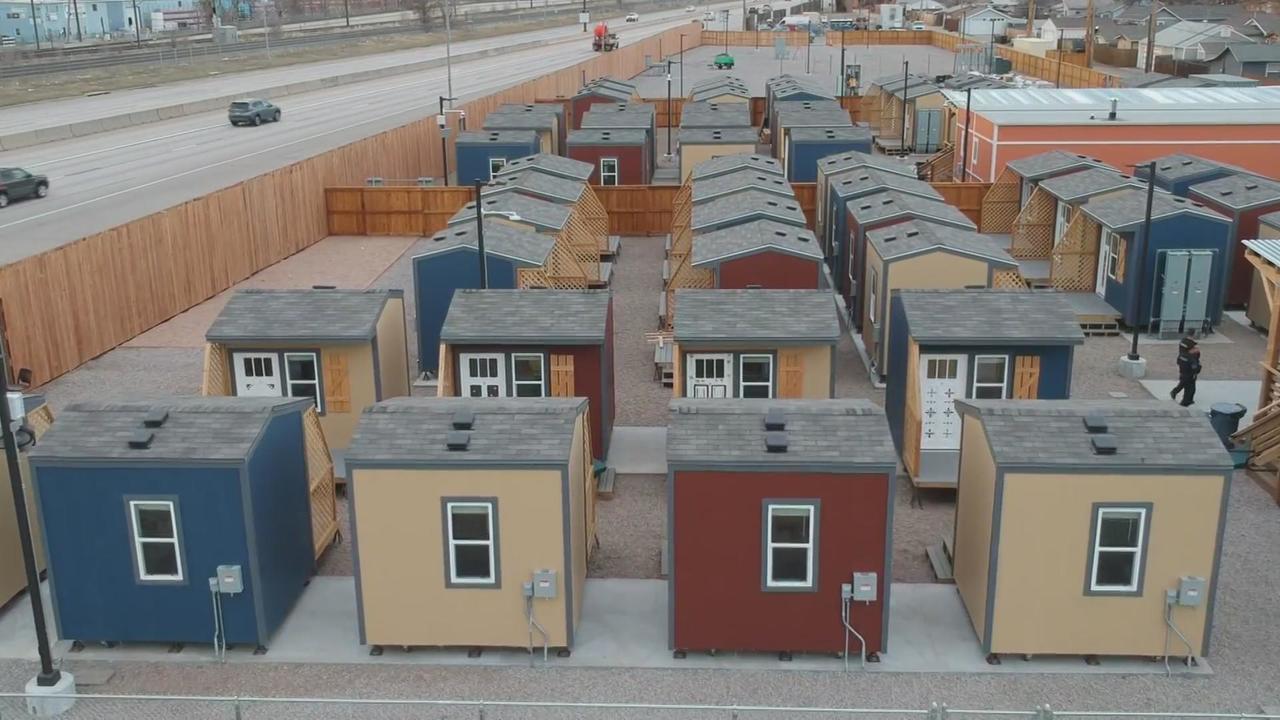In downtown Atlanta, a once dreary parking lot has been transformed into “The Melody,” a vibrant micro-community providing safe and dignified housing for dozens of formerly unsheltered individuals. This gated community of converted shipping containers offers 40 insulated studio apartments, each equipped with a single bed, HVAC unit, desk, microwave, small refrigerator, TV, sink, and bathroom. The Melody also features artificial turf, potted plants, red Adirondack chairs, and a dog park, creating an oasis of comfort and security.

Innovative Housing Solutions
The Melody represents a significant shift in addressing homelessness. The initiative, spearheaded by Atlanta Mayor Andre Dickens, aims to provide 500 units of rapid housing on city-owned land by December 2025. Cynthia Diamond, a 61-year-old former line cook, expresses her gratitude for the stability and independence this housing offers. The concept of rapid housing focuses on small, quick, and cost-effective solutions. Unlike traditional shelters, these micro-communities offer residents stability and wraparound services, including case management, counseling, mental health, and substance abuse therapy, housing guidance, and vocational skills training. This holistic approach is designed to put residents on the path to securing, permanent housing.
Nationwide Adoption of Micro Communities
The success of The Melody is part of a broader trend across the United States. Cities like Denver and Los Angeles have embraced similar models. Denver has opened three micro-communities and converted five hotels to provide housing for the homeless. In Los Angeles, a 232-unit complex made from stacked shipping containers has been established. These micro-communities act as a stepping stone, helping residents transition from the streets to more permanent housing.
Denver Mayor Mike Johnston emphasizes the importance of these first steps in addressing homelessness. Denver’s program has moved over 1,500 people indoors, with more than 80% remaining housed as of last month. These units are particularly beneficial in cities with high housing costs, where direct apartment placements are often financially unfeasible. Eric Martinez, a 28-year-old resident of one of Denver’s micro-communities, illustrates the transformative impact of these programs. After years of instability, Martinez now lives in a small cabin-like structure with his cat, Appa.
Challenges and Future Plans
Despite the successes, challenges remain. Expanding rapid housing programs often face local pushback due to concerns about safety and trash. Denver Mayor Johnston acknowledges this resistance, noting that residents’ fears are rooted in their current experiences with unsheltered homelessness. “We had to get them to see not the world as it used to exist, but the world as it could exist,” he says.

In Atlanta, the need for more projects like The Melody is pressing. A 2023 “point-in-time” count found 738 unsheltered individuals in the city, an increase from the previous year. Melody’s success has shown that providing privacy and security through individual units with personal bathrooms and kitchens can significantly improve the lives of the homeless. However, as Cathryn Vassell of Partners For Home notes, the longevity of these shipping container homes remains uncertain, though they were the right choice for their cost-effectiveness and quick deployment.
